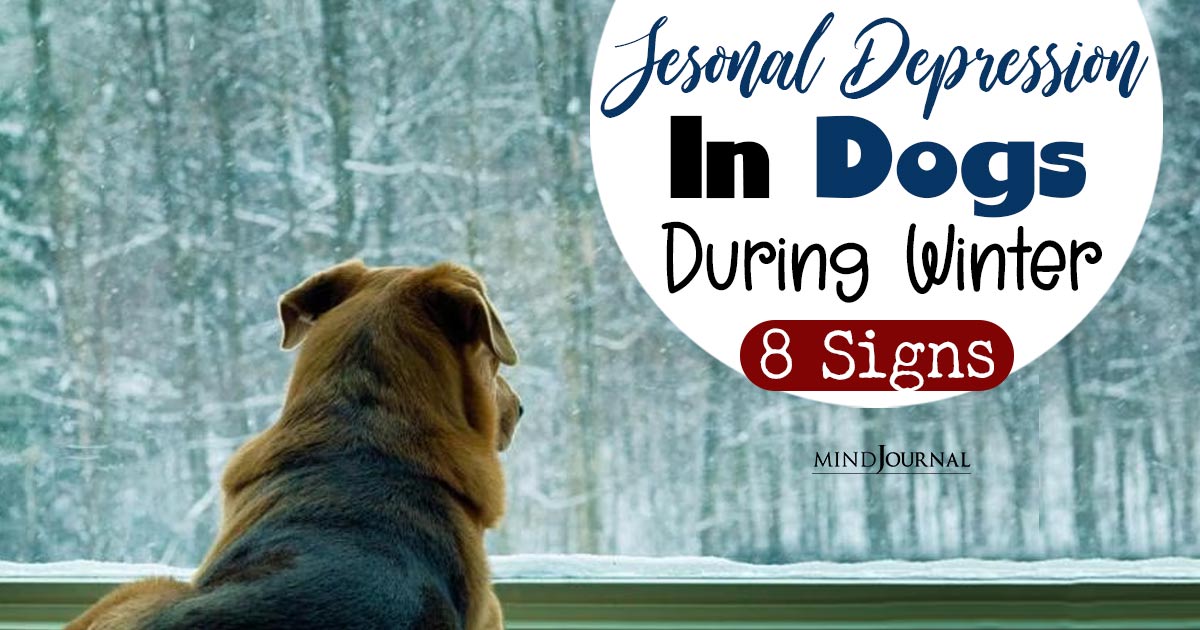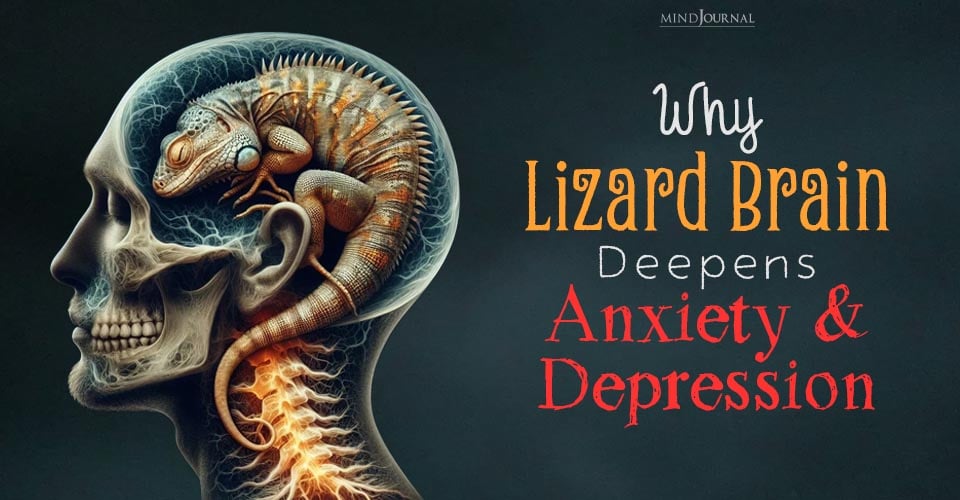Is your pooch feeling a bit gloomy during this winter season? Are cold days, long nights and a lack of walks making your dog feel the winter blues? But do dogs get seasonal depression?
Although there isn’t any evidence that dogs can develop seasonal depression, your furry friend can experience their own variation of winter blues which can affect their mood and emotions.
Similar to humans, the changing of seasons can significantly affect the mood and behavior of dogs and the condition can be very similar to seasonal affective disorder (SAD), also known as seasonal depression.
So let us explore the phenomenon of seasonal depression in dogs and identify the signs & causes and understand what you can do to help your four-legged friend.
What is Seasonal Depression in Dogs?
Seasonal depression or seasonal affective disorder (SAD) in dogs is a mental health condition marked by changing moods, emotions and behaviors in a dog that manifests during the changing seasons, specially during the fall or the winter.
According to a study, during the winter months, SAD is commonly characterized by depressive episodes and is typically relieved during summer or with the help of “morning bright light treatment”. However, “Currently, there is no animal model of SAD.”

The researchers add that as the duration of the night increases in the autumn, the release of melatonin rises. “Seasonally breeding animals use this information to orchestrate seasonal changes in physiology and behavior,” explain the researchers.
Hence, seasonal depression in dogs “may originate from the extended duration of nightly melatonin secretion during fall and winter.” Other factors such as environmental impact, changes in routine, lack of exercise and natural light also play a crucial role.
Related: Do Dogs Get Depressed? 9 Hidden Signs Of Canine Depression You Must Know About
So do dogs get seasonal depression? Yes, at least a version of it. However, their experience of SAD may be different from what we humans experience.
It should be remembered that not all dogs or pets will necessarily develop seasonal depression. But if your dog shows signs of SAD, it is important that you address it as it can be a difficult time for both the dog and their owner.
Example of Seasonal Affective Disorder in Dogs
Meet Steve and his friendly Labrador Retriever Milo. Just like any other dog, Milo loves spending time outdoors, going for walks and playing with Steve at the park. But as winter sets in and the days become colder and shorter, Milo starts spending less time outdoors and becomes noticeably less interested in playing fetch or going for walks, like he used to.
Milo spends most of his time lying around the house and sleeping. He shows little interest in playing with his toys and seems generally unenthusiastic throughout the day. He seems withdrawn, has lost his appetite and is mostly found sleeping on the couch or the bed. Even though Steve’s family members try to cheer Milo up, he just seems sad and bored most of the time.
But do dogs get seasonal depression? Such sudden changes in behavior and mood during the changing of seasons is typically an indication of seasonal affective disorder in dogs. Such mood and behavior changes occur during particular seasons and result in unusual behavior.
This is why it is crucial to identify the signs of seasonal affective disorder in dogs. The moment Steve realized that Milo may be experiencing SAD, he rushed to the vet and gave Milo the necessary treatment and support to get over such a difficult period.
What are the Signs of Seasonal Depression in Dogs?
If your dog is suffering from SAD, they may exhibit a number of different signs that may vary in duration and intensity. Some of the most common signs include:
1. Lethargy and Decreased Energy
Dogs with seasonal depression tend to be more sluggish and lose interest in activities they once enjoyed. They might spend more time sleeping or seem uninterested in their surroundings.
2. Decreased Appetite
Seasonal depression in dogs can cause a decrease in appetite or a complete loss of interest in food and eating. They may show less excitement during meal times or may not even get up to eat.
3. Increased Sleepiness
Dogs with SAD tend to sleep for longer periods of time and lose interest in activities and things they were previously interested in. They may be less active upon waking up, appear lethargic, and have trouble getting up from sleep in the morning.
Related: Can Dogs Sense Sickness In Humans?
4. Withdrawal and Isolation
If a dog has seasonal depression they may prefer being alone and become withdrawn. They may avoid interacting with their owners, other humans and dogs. They may also show less interest towards playing or other activities involving family members or other pets.
5. Anxiety or Restlessness
In some cases, the dog will exhibit signs of anxiety that may include pacing, excessive panting or whining. They might also show signs of restlessness and behaviors indicative of stress and discomfort.

6. Changes in Behavior
Dogs with seasonal depression tend to reveal behavioral changes such as becoming more irritable, aggressive, and being clingy at times. They tend to seek more attention & reassurance from owners and family members or may show signs of being annoyed or frustrated.
7. Irritability and Aggression
Seasonal depression can also lead to higher levels of irritability and aggression in dogs with SAD. They may show unusual behaviors that are uncharacteristic of them such as frequent growling or biting.
8. Excessive Licking or Chewing
SAD can make some dogs engage in excessive chewing or licking behaviors as a way to cope with the rising levels of anxiety and stress. They may lick or chew specific areas of their body like paws, tail and others.
If you can observe any or all of these behaviors in your pet, then you can find the answer to the question – do dogs get seasonal depression?
What Causes Seasonal Depression in Dogs?
While there may not be a specific or single cause of the development of SAD in a dog
1. Reduced Exposure to Natural Light
Sunlight is very important for helping to balance a dog’s internal body clock, and hormone production. In darker seasons, such as winter, their circadian rhythm and levels of serotonin can be disrupted by lack of exposure to natural light.
Serotonin, an important neurotransmitter in the brain known as the “feel good” hormone, is responsible for mood regulation. A drop in serotonin levels may lead to development of seasonal depression among dogs.
Related: How Dogs Can Help Get Your Life and Mind Back on Track
2. Lack of Outdoor Activities
Physical activities are vital for dogs as they are active animals that require both physical and mental exercises.
Dogs may suffer from a lack of physical and mental stimulation during cold months when outdoor activities are limited. This usually results in boredom, frustration and a general feeling of being lazy or inactive.
3. Changes in Routine
As the season changes, the daily routine for dogs also changes drastically. For instance, if a dog spends less time outdoors or has shorter walks during winter, it can disrupt their regular familiar routine.
Since dogs like following routines, abrupt changes can make them anxious or stressed. Understanding this is crucial to figuring out “do dogs get seasonal depression?”
4. Disruption in Social Interactions
Dogs love being social and enjoy interactions with their human companions and other pets living with them. Social interaction may wane as seasons shift, like fewer outdoor activities or fewer social activities.
This can significantly reduce social interaction and activities for dogs. Such lack or reduction of social stimulation can result in feelings of isolation, loneliness and sadness.
5. Changes in Family Dynamics
Family dynamics can change to some extent during seasonal changes, such as parents going back to work after the holidays or children going back to school.
As family members have less time to spend with their dog, the pet may feel a lack of attention, interaction and love from their human owners. Dogs are creatures of habit that require daily routines and companionship of their human friends, and any deviations from this can lead to stress and emotional imbalance.
6. Pheromonal Changes
Fluctuations in pheromone levels during seasonal changes can impact a dog’s emotional well-being. This means that an increase in pheromone levels in the environment during mating seasons may cause some dogs to become more anxious or restless.
These alterations in pheromonal cues might contribute either to the development or worsening of seasonal depression.
7. Past Traumatic Experiences
Some dogs may be more likely to develop seasonal depression if they had traumatic experiences in the past, like abandonment or negligence during the winter.
The recurrence of similar environmental cues could bring back unpleasant memories causing their overall condition to deteriorate, adversely affecting the mental well-being
8. Genetic Predisposition
Though there is limited research on genetic predisposition towards seasonal depression in dogs, it is possible that certain breeds or individual dogs have higher susceptibility due to their genetics.
Genes can strongly influence a dog’s personality, anxiety levels and emotional resilience, which can make them more prone to developing a seasonal affective disorder.
Seasonal depression in dogs has multiple causes, which is why pet owners need to address these triggers and implement appropriate measures for their pets during such difficult times.
You can help your dog become cheerful by addressing the core issues and by providing a supportive environment.
Related: The Deep Spiritual Meaning Of Having A Dog Or Cat As A Pet
How to Help Your Dog with Seasonal Depression
Wondering what to do to help your dog to get over seasonal depression? Once you know the answer to the question “do dogs get seasonal depression?”, you can address the issue by taking certain steps and relieving seasonal affective disorder in dogs.
Here’s how to help your dog get better –
1. Increased Indoor Enrichment
To counter the effects of lack of outdoor activities, make sure to provide your dog with lots of indoor enrichment. You can try interactive play, train your dog to use puzzle toys or build obstacle courses to keep them mentally and physically stimulated.
2. Ensure Sufficient Light Exposure
Make sure that your pet gets enough natural sunlight during the day. Pull back curtains or open blinds to allow in as much daylight as possible. In case you need to, it is good to consider using pet-specific artificial light therapy.
3. Stick to a Consistent Routine
Dogs are creatures of habit and routines help them thrive. So when the seasons start to change, build, maintain and stick to a consistent and regular schedule. Keep mealtimes, walks, exercises and play times consistent as far as possible in order to give them a feeling of security, stability and assurance.
4. Provide Emotional Support
Give your dog lots of love, reassurance, attention, and comfort during this challenging period. Spend a lot of time bonding, hugging, playing and participating in activities that they enjoy. Your presence alone can be quite beneficial for your dog’s general wellbeing.
5. Consult with a Veterinarian
It is crucial to see a veterinarian when you identify persistent or severe symptoms of seasonal depression in your dog. A healthcare professional can rule out any underlying medical conditions and suggest effective treatments or interventions that may be necessary.

Takeaway
Do dogs get seasonal depression? Yes, they do, just like you and I. Although not all dogs may necessarily suffer from seasonal affective disorder (SAD), some may develop the condition during seasonal changes.
By identifying the signs, and causes and addressing the issues by taking the necessary steps you can successfully improve their overall well-being.
Remember, that you are your dog’s world and they depend on you for love, care and support. So make sure of being aware of seasonal depression in dogs and consult a vet immediately for proper guidance. With treatment, love and care, your dog will become happy and healthy once again.
Related: Science Confirms That Dogs Can Smell Bad People
Frequently Asked Questions (FAQs):
How do I know if my dog is depressed?
Common signs of depression in dogs include lethargy, withdrawal, changes in appetite, and disinterest in activities. It is best to consult a vet.
Do pets get the winter blues?
Pets can experience winter blues, but their experience may be different from what humans experience. Monitor changes in behavior, appetite, and activity levels.
Do dogs get depressed from lack of sun?
Yes. A lack of sun can lead to depression in a dog. Observe mood shifts and focus on increasing indoor activities and adequate sunlight exposure.










Leave a Reply